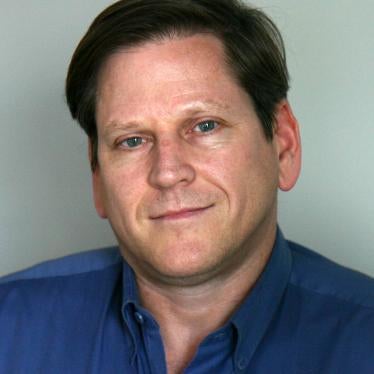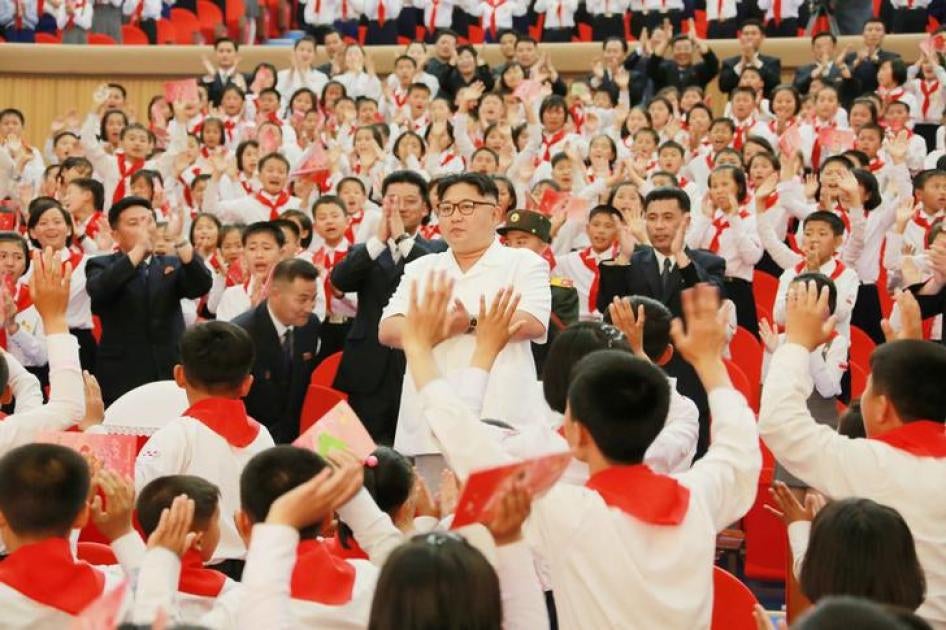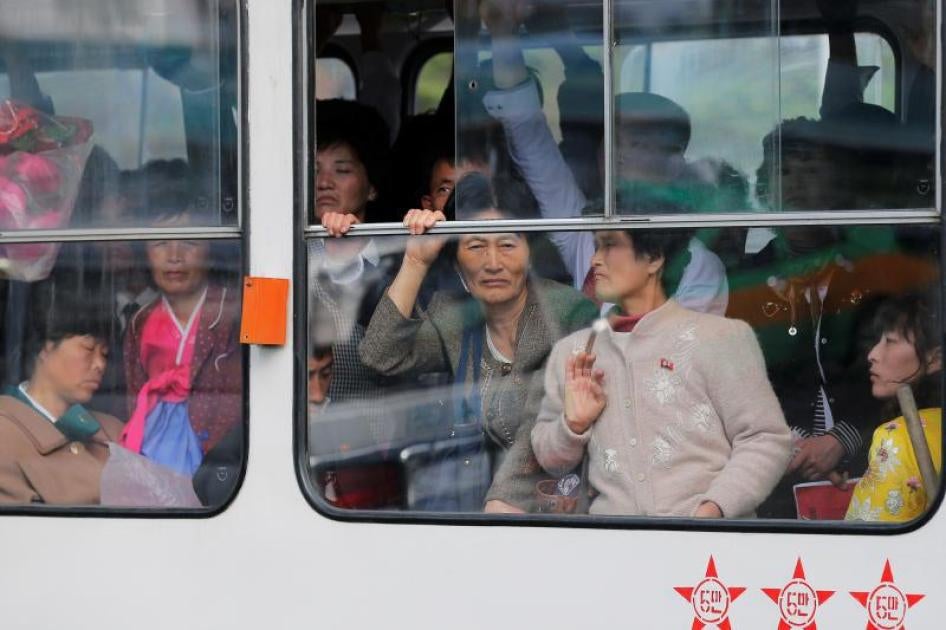When Choi Seung Chol was born in North Korea in 1990, his parents believed that they already knew how his life would unfold. The government would feed him and provide him with free housing, education, and health care. In exchange, the authorities would tell him what to think and what to say; decide where he would live, study, and work; and most important, determine whether he would be able to join the military or the ruling Korean Workers’ Party. To make all these decisions, the state would refer to Choi's performance at work and school and his songbun—the sociopolitical classification that determines the status of North Korean citizens based largely on their family’s history of perceived loyalty to the government.
The problem for Choi, who fled North Korea in the summer of 2014 and uses a pseudonym to protect the relatives he left behind, was that his family’s records were dismal. The state had classified Choi’s grandfather as a supporter of the Japanese during World War II, Choi told an employee of Human Rights Watch in Seoul in June 2015, and by the time he was born, that designation had already shaped his parents' fate: in the late 1960s, when his father was a child, the government forced him and his family to move to a village in a mountainous area in the country's east. Only after several decades of backbreaking agricultural work did the government allow Choi's father to move to a large coastal city.
What did this mean for the young Choi? Even if he excelled in his studies and showed deep loyalty to the government, his potential was limited. The best he could hope for was to go to a university in the second-tier city where he was born, get an administrative job there, and live near his family. He would never become a ruling party official or live in Pyongyang, the capital, where elite families with the highest songbun reside and have access to the best North Korea has to offer—from imported food to its elite schools and universities.
The North Korean government first developed the songbun system between 1957 and 1960 as North Korean founder Kim Il Sung consolidated power over what would become one of the world's most repressive states. Kim’s government based each citizen’s songbun—a term that translates as "ingredient" but can also mean "background"—on that individual's actions as well as those of his or her paternal ancestors during the Japanese colonial period, which lasted from 1910 to 1945, and the Korean War, from 1950 to 1953. The state used the system to isolate and purge Kim’s enemies, real and perceived, and to reward his supporters.
Under Japanese rule, landowners, businessmen, intellectuals, and Koreans who worked for the colonial administrators occupied the top of the social hierarchy; farmers, factory workers, and laborers made up the lower classes. The creation of songbun turned this structure upside down. Kim created three groups—the “core,” “wavering,” and “hostile” classes—each of which contained a number of subcategories. The people closest to Kim, their relatives, and anti-Japanese resistance fighters became North Korea's core, or ruling, class. Peasants, laborers, and workers were lifted up from the bottom of the social order, their lowly position filled by those who had opposed Kim's ascent to power or collaborated with South Korea or Japan, as Choi's grandfather had. This new lower stratum—the hostile class—also contained North Koreans who had enjoyed high status under Japanese rule, from landowners and intellectuals to religious leaders and aristocrats. Over several decades, starting in the late 1950s, Kim Il Sung’s government classified approximately 3.2 million people as members of the hostile class, relocating many of them to impoverished and isolated areas in the country’s north. Because songbun is partially inherited, over time, it engendered a kind of hereditary caste system, under which members of the lowest caste and their children took up such work as farming and mining and those in the highest caste became government officials.
In the 1990s, much of this changed. First, in 1991, came the collapse of the Soviet Union, and with it, the loss of the economic support that it had provided North Korea as one of Pyongyang's major benefactors. Then, between 1994 and 1997, came a series of droughts and floods that crippled agricultural production and compounded the difficulties caused by Pyongyang’s long-standing mismanagement of the North Korean economy, driving the country into crisis. In 1995 alone, according to a UN estimate, floods in North Korea destroyed around 1.5 million tons of grain. Hospitals exhausted their supplies of medicine, and as electricity and gas ran out, factories stopped working. North Korea’s distribution system for food and other essentials fell apart. Lacking the money to import enough food from abroad, the government redirected scarce rations to North Koreans with good songbun, such as party officials and members of the military; many students abandoned their studies to help their families find food. Thanks to the opacity of the North Korean regime, the number of people who died in the resulting famine remains unknown, but estimates of the death toll during the worst phase of the crisis, which lasted from 1994 to 1998, range from several hundred thousand to 3.5 million.
The privation meant that many North Koreans employed by the state had to start making money on the side to support themselves. Market activities were still illegal, but over the course of the famine, the government relaxed the enforcement of official controls on private commerce, and many North Koreans, including Choi's parents, began to trade on the gray market. In 2003, the government went a step further, allowing some government-sanctioned markets to open up.
As ordinary North Koreans began to earn more money, many of them realized that by paying bribes to the right officials, they could access some of the privileges that had until then been reserved for those with high songbun, such as party membership. And as a culture of corruption took hold, North Koreans began to buy privileges that did not exist before the famine for almost anyone: impunity for crimes and permission to travel to other provinces, for example. All of this complicated the songbun system by allowing lower-class North Koreans to use private wealth and personal connections to access the markers of social status.
For their part, Choi's parents ran a successful business selling fuel to truck drivers and the military, he said, so they were able to access and bribe powerful officials who had previously been inaccessible to them. In this new environment, they hoped, Choi, too, could become a powerful government official. To do that, he would need to attend a good school and prestigious university, join the army, and become a party member, all while earning money and maintaining a network of official contacts. So Choi worked hard at school, he said, and beginning in secondary school, he would wake up at 6 AM—four hours before his classes began—to demonstrate his loyalty by, for example, cleaning shrines to North Korean leaders. Thanks to his parents’ connections, he became the head of the party youth league at his school and was put in charge of checking attendance and monitoring the perceived loyalty of his classmates. By the time he was nearing the end of secondary school, Choi had become eligible to apply to elite universities in Pyongyang, which would in turn allow him to join the police and army intelligence programs. “The dream for me and all my friends was to get a job with power, and become a corrupt government official,” he said. For Choi, that seemed like the only way to thrive.
Even though Choi's family had paid bribes to secure his acceptance, all of his university applications were rejected. The stigma of Choi's grandfather's past appeared insurmountable: Choi would never be able to become a high-ranking official or move to Pyongyang. As Choi and others have realized, with the songbun system still standing, there remains much that cannot be bought.
North Korea’s constitution claims that the country’s citizens “enjoy equal rights in all spheres of state and public activity.” But as Choi’s story and many others like it demonstrate, Pyongyang disregards this guarantee, as it does many others made by the constitution. A 1995 article in the government outlet Rodong Sinmun explained the contortion neatly. “Socialist human rights are not supra-class human rights that grant freedom and rights to hostile elements,” it stated.
The songbun system does not only contradict North Korea’s constitution—it also violates a number of international agreements signed by Pyongyang. The International Covenant on Civil and Political Rights and the International Covenant on Economic, Social and Cultural Rights, both of which North Korea ratified in 1981, require signatories to guarantee that the rights they enshrine—to freedom of conscience, due process, and much more—are “exercised without discrimination of any kind as to race, color, sex, language, religion, political or other opinion, national or social origin, property, birth or other status.” The songbun system violates that commitment.
The United Nations, for its part, has repeatedly condemned the songbun system and has recommended that North Korea put an end to it. In a 2014 report on human rights in the country, for example, a UN commissioncalled on Pyongyang to “end discrimination against citizens on the basis of their perceived political loyalty or the socio-political background of their families”—a recommendation backed by the UN Human Rights Council, which established the commission, and the UN General Assembly, which also called for targeted international sanctions against the North Korean officials responsible for rights abuses. And in December 2015, for the second consecutive year, the UN Security Councildeclared North Korea’s atrocious human rights violations a threat to regional security.
North Korea has rejected the UN’s recommendations out of hand. That should change: Pyongyang should eliminate the songbun system and respect the rights of its people as enshrined in domestic and international law. The Human Rights Council and the General Assembly need to press the UN Security Council to refer North Korean leader Kim Jong Un and his government to the International Criminal Court to answer for crimes against humanity perpetrated in North Korea. The songbun system is a pillar of North Korea’s ability to carry out rights abuses, so eradicating the system should be a priority.
Despite the apparent progress North Korea’s private sector has made by undermining the central government’s control of the local authorities, the songbun system still stands, and North Korean leaders still use it to reward their friends and punish their perceived enemies. And among the North Korean populace, the system inspires the same feeling it always has: helplessness.
“Unless you have a way to the top," Choi said, "there is no hope, nothing left but hard work with no return and constant fear and payment of bribes to be able to barely go out. That is why I decided to leave.”










